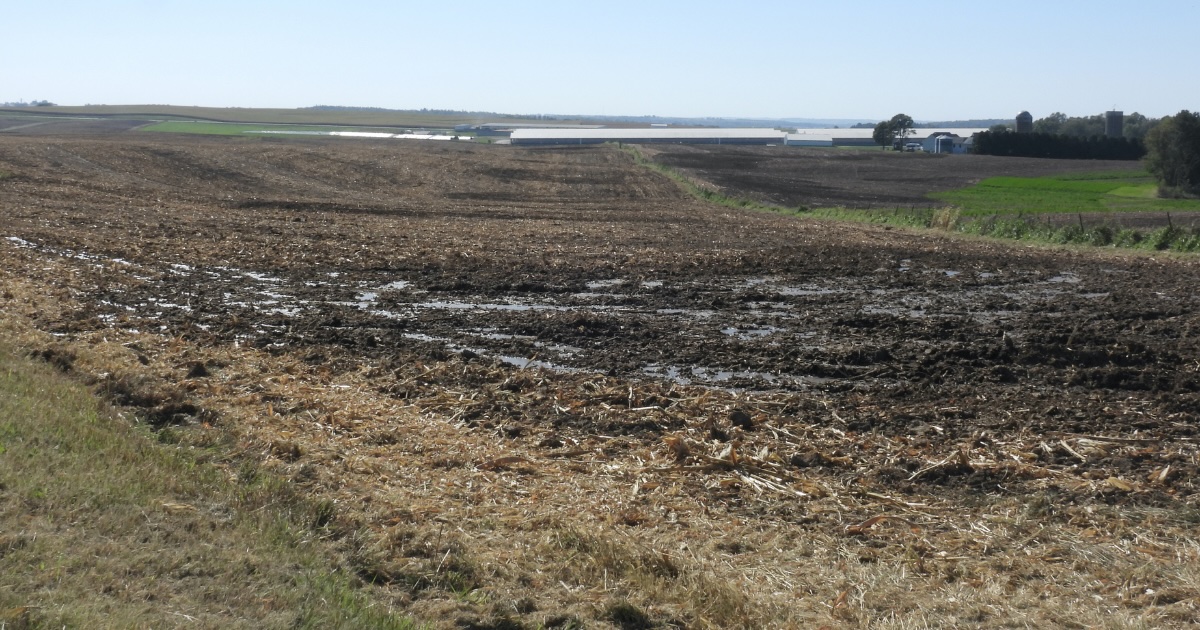LOUISVILLE, Ky.—With a federal investigation into technically active but non-producing “zombie” mines set to begin in March, a citizens law group in Kentucky has found production idled at nearly 40 percent of all active coal strip mines in the state, with some not mined in more than a decade.
In all, these “functionally abandoned” mines—48 of 126 active mines—scar 19 square miles of the state, and leave behind a combined 15 miles of dangerous, blasted-away mountainside cliffs, called “highwalls.”
Strip mines are supposed to be reclaimed shortly after blasting and digging for coal, and leaving them alone poses risks to the public and the environment. Environmental advocates have for several years been attempting to quantify a problem that they say has worsened as the coal economy has crashed.
At the same time, coal companies in bankruptcy have stopped paying into industry funded programs meant to assure mines are stabilized and cleaned up so the coal industry does not leave behind polluted streams or dangerous highwalls on landscapes that were once forested and hosted critical headwaters.
In October, eight Democratic lawmakers, including one from Kentucky and two from Pennsylvania, called for a federal investigation into the full extent of environmental damage of the functionally abandoned “zombie mines,” which can leak toxic waste and send boulders into homes.
“Some coal companies are idling mines and stalling reclamation to cut costs,” the lawmakers wrote to the U.S. Government Accountability Office. “Because mine operators typically rely on coal revenue to fund reclamation, the longer a mine remains idle, the greater the risk that the operator may not have sufficient funds to pay for reclamation.”
On Thursday, a spokesman for the GAO, which conducts non-partisan investigations for Congress, said the agency has agreed to conduct the study, which will start in March.
“We worked with lawmakers to advocate for the GAO report,” and are pleased that it has been approved, said Rebecca Shelton, director of policy for the Appalachian Citizens’ Law Center, a nonprofit based in Whitesburg, Kentucky, which is in part of the state’s mountainous Eastern Kentucky coalfield.
These mines are a serious threat, “but the challenge is understanding how big of a problem is” across multiple states, she said.

The lawmakers—Reps. Matt Cartwright (D-Pa.), Don Beyer (D-Va.), Morgan McGarvey (D-Ky.), Jared Huffman(D-Ca.), Katie Porter (D-Ca.), Alexandria Ocasio-Cortez (D-N.Y.), Raul Grijalva (D-Ariz.) and Sen. John Fetterman (D-Pa.)—asked GAO to quantify the number, location and size of coal mines that have neither produced coal nor made reclamation progress, and their bonding status, as well as whether federal regulations may need to be updated.
Strip mining for coal in Central Appalachia is an environmentally violent process typically involving the clearcutting of forests and then the blasting of the tops or sides of mountains to get at buried coal. Waste rock can be shoved into headwater streams.
Reclamation can consist of backfilling and grading a mined area, eliminating unstable highwalls and mine waste, planting grass or trees, and managing and treating contaminated water that runs off the site. The federal Surface Mining Control and Reclamation Act of 1977 generally requires that mined land be returned to its approximate original contour.
The law also requires coal mining companies to secure bonds to cover the costs of reclamation should the companies go bankrupt.
The new report found that 27 of Kentucky’s functionally abandoned mines have not produced coal for over five years, and several have not produced coal for more than a decade. Nearly half of the zombie mines in Kentucky were located in one eastern Kentucky jurisdiction—Pike County, which borders Virginia and West Virginia.
The report concedes that some of the mines could have had some reclamation work done, but they could not detect much of a change in state records that track disturbed land.
In 2022, Inside Climate News found that as the coal industry collapsed, coal mining companies had racked up a rising number of violations at surface mines, and state regulators were failing to bring a record number of them into compliance, according to internal documents made public under the state’s open records law. One state official at the time described the situation as “completely out of control” in an email.
This story is funded by readers like you.
Our nonprofit newsroom provides award-winning climate coverage free of charge and advertising. We rely on donations from readers like you to keep going. Please donate now to support our work.
Donate Now
The new report recommended Kentucky regulators redetermine the required bond amounts for all functionally abandoned mines and make sure those revised bonds are sufficient to cover reclamation activities.
John Mura, spokesman for the Kentucky Environment and Energy Cabinet, which regulates mining and reclamation in the state, said he could not comment on the report Thursday. “We just received the report (and) we’re reviewing it.”
Shelton said answers are needed now.
“When coal companies stop producing from mines, they are legally required to clean up their mess,” she said. “These findings show they are delaying reclamation, maintaining mines in active status even though the likelihood that these mines will produce coal again appears very slim.”
She said that “it is essential that Kentucky’s regulators stringently enforce the law to ensure that coal companies maintain their responsibility for clean-up costs and communities don’t have to shoulder the burden of degrading mines in their backyards that companies leave behind.”

















